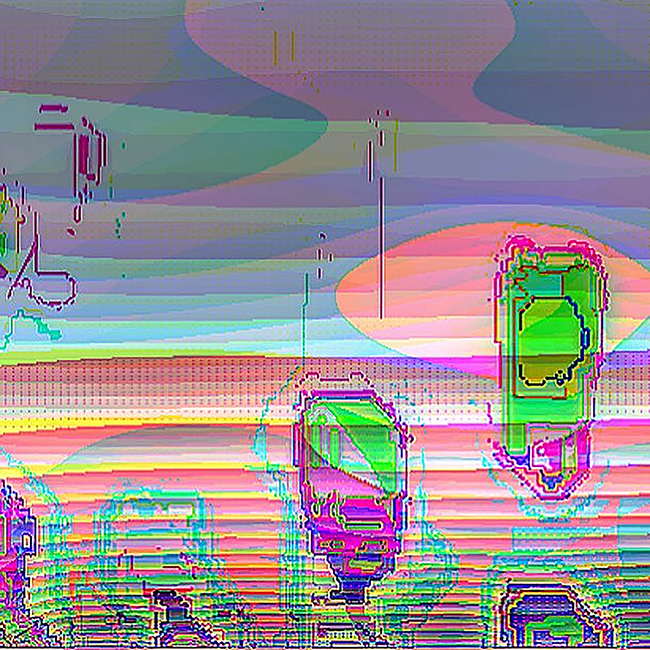
from Cinegraphic.net:
on 'The Unheimlich Glitch' in Utsanga.it
story © Michael Betancourt, March 28, 2018 all rights reserved.
URL: https://www.cinegraphic.net/article.php?story=20180215094714351

The journal Utsanga.it has a theoretical essay of mine on defamiliariazation (Brecht’s Verfremdungseffekt) and glitch art (technical failure). Here is an excerpt:
The postcinematic aspects of the Unheimlich glitch cannot be under-emphasized. It is precisely a product of post-digitality violating the established ontological order of cinema—the differentiation between Modernist conceptions of medium-specificity and the convergent break-down of those boundaries by computer technology—coupled with the expansion of its dispositive by the emergent identifications of ambivalent meaning posed by a metastable articulation. The specifically Unheimlich (uncanny) dimensions of digital materiality for cinematic ontology (as demonstrated by the glitch) resides in displacements of established lexical expertise that become apparent in defamiliarization. It is not mere materiality, but its role in interpretation that is essential. Connections to the formal medium masks the ideological and lexical dimensions of post-digital challenges, effectively emphasizing materiality to the exclusion of both critical and normative modes’ adaptation to immanence and maintenance of familiar order.
This defamiliar consciousness is not ‘critical’ through recourse to a predetermined analytic protocol, instead emerging from the awareness fostered by the contingency of that process. These results, while related to the Modernist aesthetics of Brecht’s Verfremdungseffekt, will always exceed them: the Unheimlich is a transitive experience, one that morphs over time, remaining the same and continuously changing to meet the demands of a changed situation beyond his Modernist aesthetic of critique that relies on a Marxist dialectic for its ordering. Defamiliarization remains constant: without the violation of expectations (whatever they have become) the rupture does not take place—a demonstration of how this process escapes containment as a historical protocol, or isolation within a particular aesthetic, or even the particular critical framework of Marxism. The destabilization of established signifiers will necessarily challenge whatever comfortable assumptions make them appear familiar and unquestionable; the links between glitch and the destabilizations of postcinema originate with this same violation of established belief. The Unheimlich adapts to novel situations, taking on appropriate formal characteristics that identify the margins and resentiments of the status quo, bringing their contingency back into conscious awareness—this protean shifting is definitional. The defamiliarized is an excluded and uncomfortable limit whose rejection and displacement (erasure by the aura of the digital) maintains the coherent, existing order; returns of the excluded and elided unground accepted orders because they reveal their imposed nature as artifice. The development of the Unheimlich glitch in postcinema reflects the challenges posed by post-digitality generally, a self-referential encounter for the audience—resulting in a ‘criticality’ that challenges both critical and normative modes’ totalizing and teleological analyses, fully opening them to radical change.
Copyright © Michael Betancourt March 28, 2018 all rights reserved.
All images, copyrights, and trademarks are owned by their respective owners: any presence here is for purposes of commentary only.